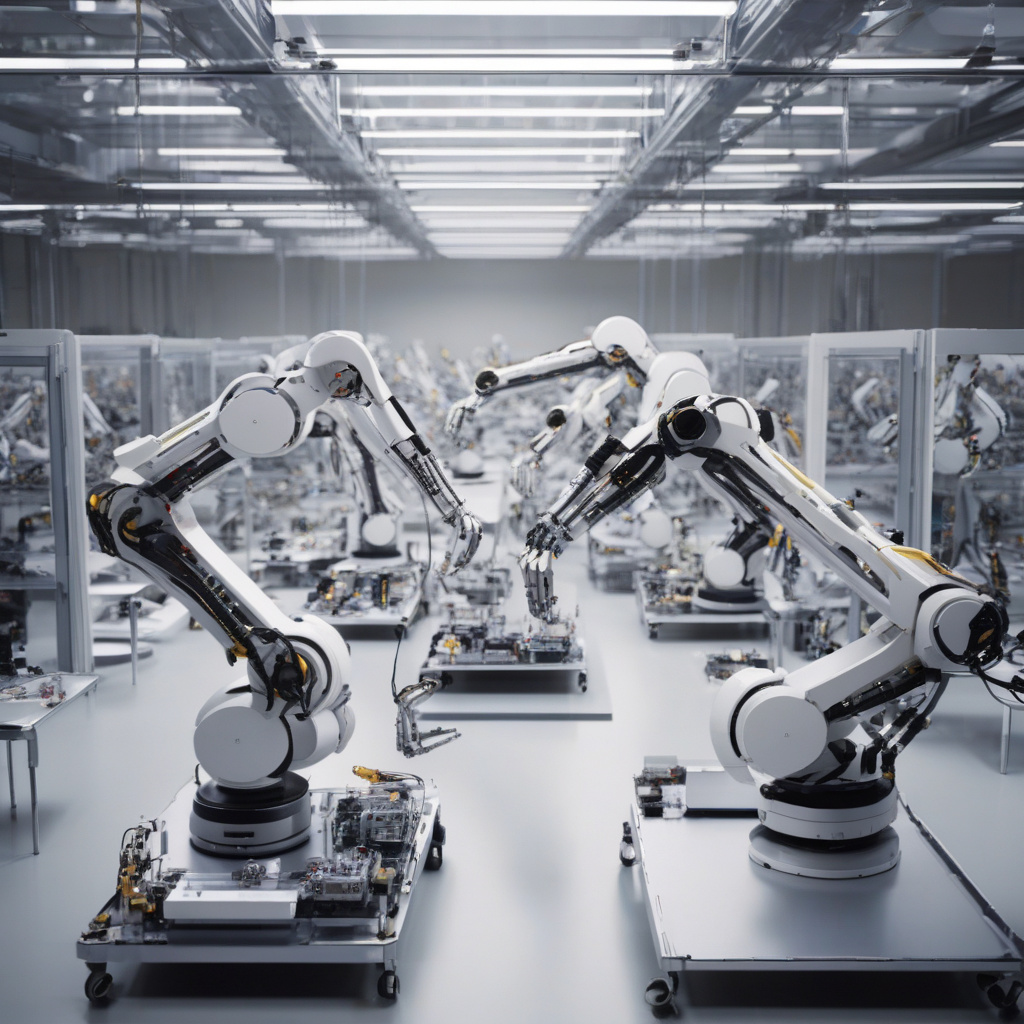The Future of iPhone Manufacturing: Apple’s Automation Drive
Apple is famously known for pushing boundaries and setting trends in the tech industry. A recent report from Digitimes reveals that Apple is taking its commitment to innovation a step further by urging its supply partners to heavily invest in automated manufacturing in their factories. While this move isn’t entirely new, the level of insistence Apple is placing on automation is unprecedented. Suppliers looking to secure orders from Apple are now required to embrace automation throughout their production lines.
This automation initiative isn’t limited to a single product; Apple is striving to implement advanced automation across all its supply chains. While there might be initial costs for suppliers, the long-term benefits are promising. Increased manufacturing efficiency and reduced production expenses are expected outcomes, largely attributed to a decreased reliance on manual labor.
A Shift Towards Automation
Apple’s strategy to automate its manufacturing processes goes hand in hand with its efforts to diversify manufacturing away from China. This strategic move aligns with Apple’s long-standing commitment to smart industrial production. Reports from last year highlighted Apple’s ambitious goal of automating iPhone production to halve the number of workers required for final assembly, a significant shift that’s already in progress.
Key Apple suppliers like Foxconn are also onboard with this automation trend. In 2016, Foxconn replaced 60,000 employees with robots in one of its factories, showcasing a substantial reduction in human labor. The company continues to explore the integration of humanoid robots in its operations, further streamlining production processes. Even before Apple’s recent automation push, Foxconn had already decreased its workforce by up to 30%.
The Evolution of Manufacturing Jobs
As automation takes center stage in manufacturing, the landscape of industrial jobs is undergoing a transformation. While there may be a resurgence of manufacturing roles in former industrialized economies, the nature of these jobs will be vastly different. Future factories are envisioned as highly automated facilities with minimal human presence, heavily relying on robotics and remote expertise for operation and maintenance.
The workforce in these automated factories will require a blend of skills, from basic operational knowledge to specialized maintenance capabilities. Utilizing technologies like Vision Pro headsets, employees will interact with remote specialists to address challenges efficiently. The emphasis will shift towards employing highly skilled specialists alongside smart engineers, reducing the need for a large workforce on-site.
Embracing Renewable Energy
The move towards automation isn’t just about efficiency; it also paves the way for sustainable practices. Automation in manufacturing is expected to be powered by renewable energy sources, offering a cost-effective alternative to traditional fossil fuels. With solar energy becoming more accessible, fully automated factories can operate efficiently while minimizing environmental impact through the use of recycled materials.
The Future of Manufacturing with Apple
Apple’s commitment to automation signifies a significant shift in the manufacturing landscape. The company’s Advanced Manufacturing Fund aims to drive innovation and support the transition towards automated production processes. While job opportunities in manufacturing may evolve, with roles like security management and specialized tasks remaining, the future of manufacturing is undoubtedly moving towards a more automated and efficient model.
In conclusion, Apple’s ambitious drive towards automation in its iPhone factories sets a precedent for the industry. As technology continues to advance, the evolution of manufacturing processes will redefine the roles of human workers and automation in creating a more efficient and sustainable future.

